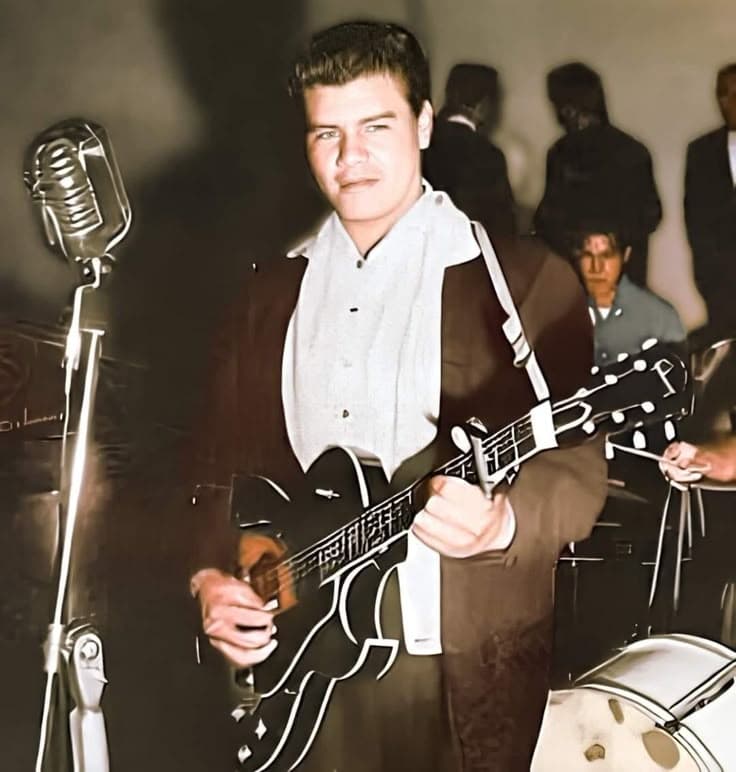
A Tender Whisper Across the Decades: Ritchie Valens’ Heartfelt Plea in “Little Girl”
This poignant ballad, “Little Girl,” released posthumously in 1959, captures the delicate emotions of young love and longing. Though it never reached the towering heights of his earlier hits, peaking at number ninety-two on the Billboard charts, the song resonates with a gentle sincerity that continues to touch hearts decades later. It stands as a tender testament to the burgeoning talent tragically silenced far too soon.
The story behind “Little Girl” is intertwined with the heartbreaking narrative of Ritchie Valens’ brief but incandescent career. Recorded likely in the final months of his life, before the fateful plane crash on February 3, 1959, that also claimed the lives of Buddy Holly and J.P. “The Big Bopper” Richardson, the track offers a glimpse into the softer side of the young rock and roll star. While he was electrifying audiences with his energetic performances of “La Bamba” and “Donna,” Valens also possessed a remarkable sensitivity, evident in this heartfelt ballad. It’s believed that the song, penned by Valens himself, reflects the innocent affections of youth, perhaps inspired by a real-life encounter or simply the universal experience of a young man’s burgeoning feelings. The rawness of the emotion conveyed in his voice lends a particular poignancy, knowing the brevity of the life from which it sprang.
Lyrically, “Little Girl” is a straightforward yet deeply affecting expression of admiration and a yearning for connection. The singer, presumably a young man, observes a “little girl” with captivating qualities – her smile, her eyes, her very presence. He is struck by her innocence and charm, feeling a sense of awe and a hesitant desire to know her better. The lyrics, “Little girl, I want you to know, I think you’re fine,” are simple but carry the weight of genuine sentiment. He expresses a wish to hold her hand and perhaps even steal a kiss, painting a picture of innocent infatuation. The repeated refrain of “little girl” emphasizes the tenderness and perhaps the perceived distance between the admirer and the object of his affection. It speaks to the tentative nature of young love, the unspoken feelings and the hopeful anticipation of a deeper connection.
The musical arrangement of “Little Girl” further enhances its emotional impact. In contrast to the upbeat rock and roll for which Valens was largely known, this track features a more subdued and melodic approach. The gentle instrumentation, likely featuring soft guitar chords and a subtle rhythm section, creates an intimate and reflective atmosphere. Valens’ vocal delivery is tender and earnest, conveying the sincerity of the lyrics without the bravado of his more famous rock anthems. This understated production allows the listener to focus on the vulnerability of the emotions being expressed, making the song all the more relatable and enduring.
While “Little Girl” might not be the first song that comes to mind when reminiscing about Ritchie Valens, it holds a unique place in his tragically short discography. It reveals a different facet of his artistry, showcasing his ability to convey heartfelt emotion through a simple yet effective ballad. Released on the album “Ritchie,” after his passing, the song serves as a poignant reminder of the immense talent that was lost and the potential for even greater musical contributions. Listening to “Little Girl” today evokes a sense of nostalgia for a time when young love was often expressed with such innocent sincerity. It’s a gentle whisper from the past, a reminder of the universal experience of youthful affection, made all the more poignant by the knowledge of the young artist’s untimely departure. The song stands as a tender echo, resonating with the enduring power of simple, heartfelt emotion.